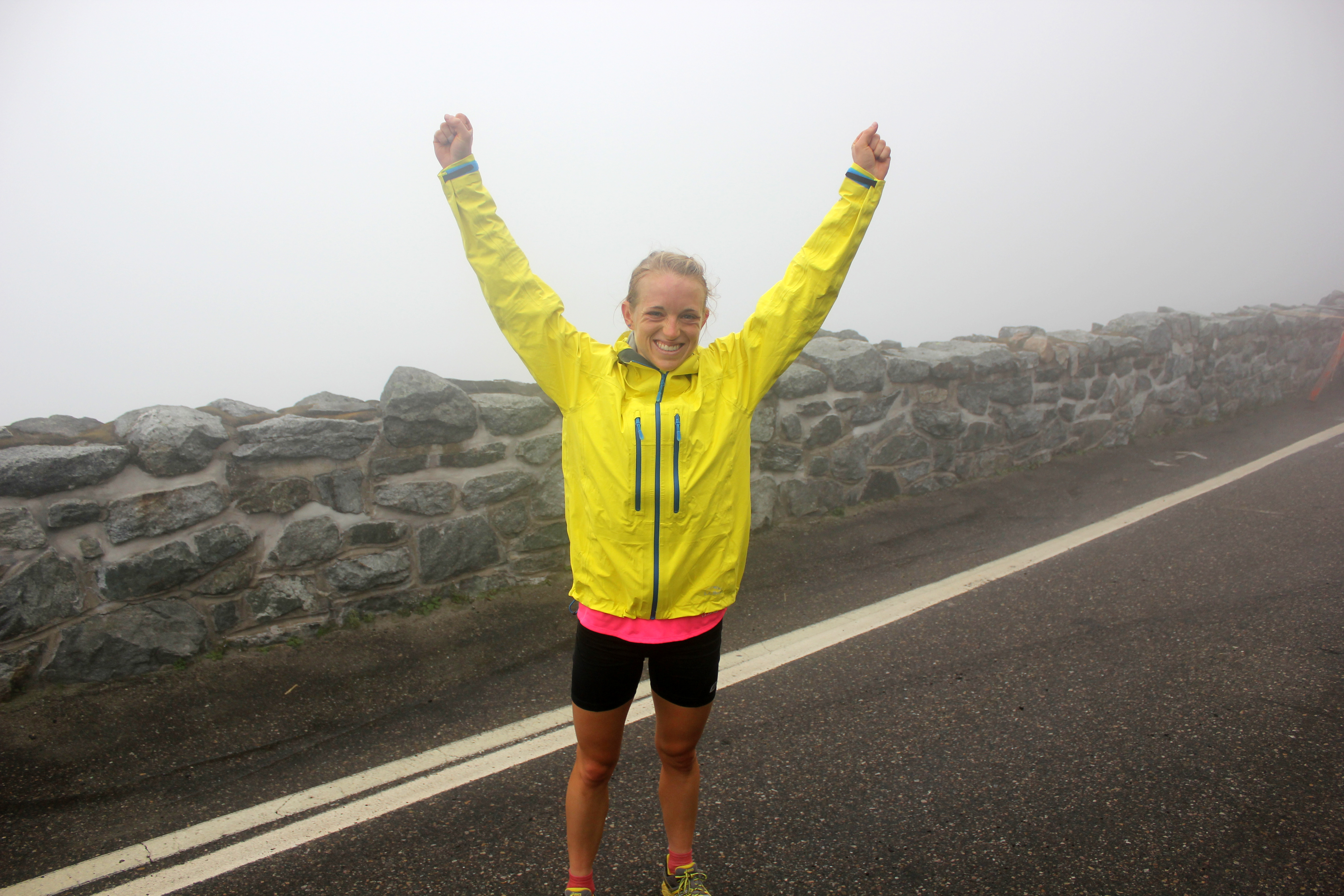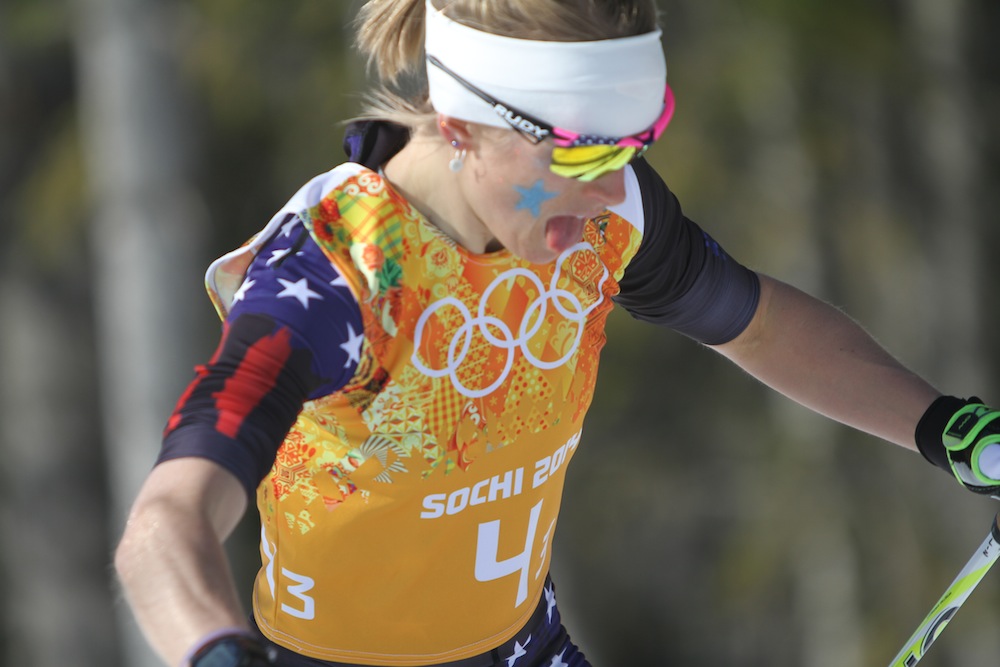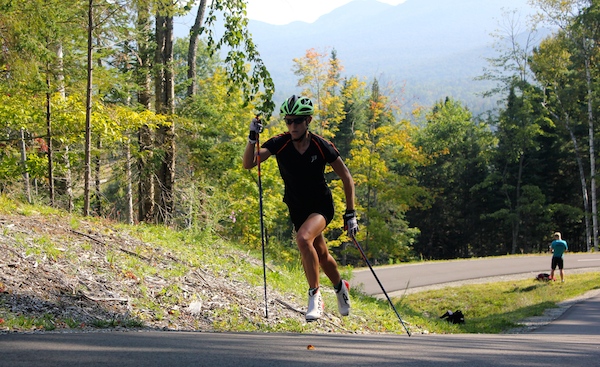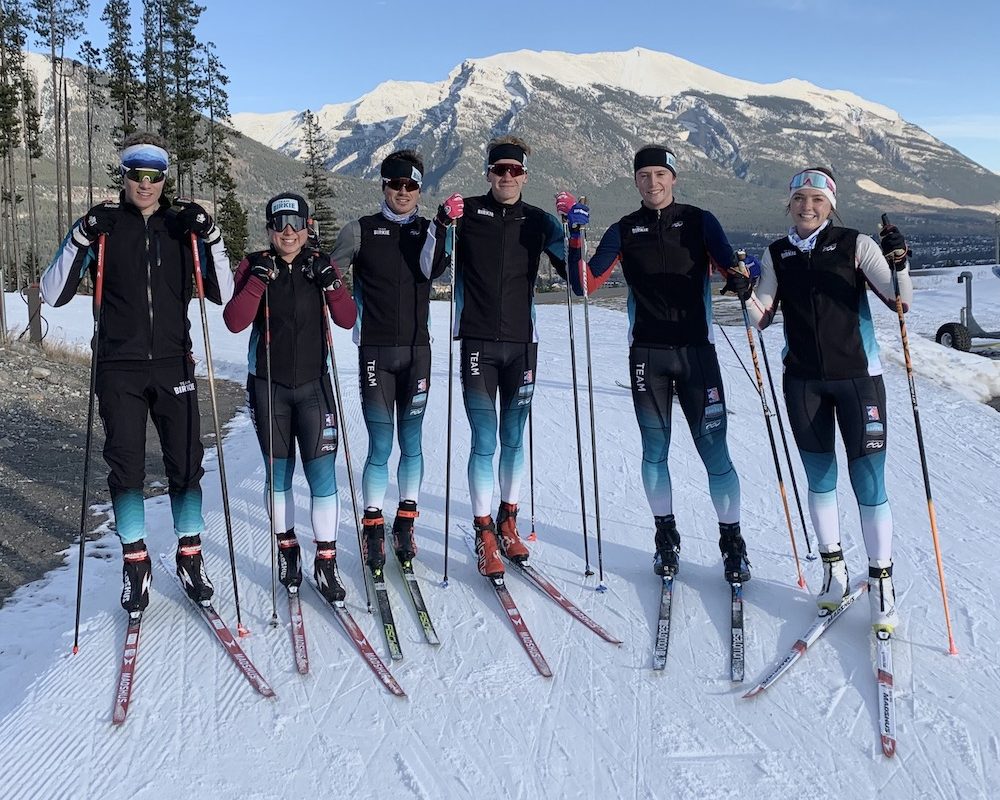
Liz Stephen was expected to win the 2014 Climb to the Castle just as she has been for the previous three years. So when she crossed the finish line over three-and-a-half minutes ahead of the next competitor with her fastest time to date, it was no surprise.
The 27-year-old has built a resume of impressive results in hill climbs – both domestic and abroad. Apart from her many Climb to the Castle wins, Stephen’s most notable finishes include a podium in the final climb of the 2014 Tour de Ski and a win in the 2014 rollerski hill climb of the acclaimed Norwegian Blink Festival.

For the East Montpelier, Vt. native, hill climbing has always been always natural.
“As a kid I loved doing the hardest thing you could think to do,” she told FasterSkier. “For me that was running up a hill.”
Not much has changed since her childhood days. Now living in Park City, Utah, Stephen can run, ski, or bike for hours without having to descend.
As her results suggest, Stephen’s challenge-oriented mindset and an inclination toward skating boosted by a small physique and boundless energy have led her to be near unstoppable when it comes to an incline.
But Stephen is so much more than a hill climber. She’s a teammate. This fact has been recognized throughout her career on the national scene with U.S. Ski Team women’s coach Matt Whitcomb calling her the “glue” of the team in a 2013 ESPN article.
But even the “glue” of a team can find difficulty in the aftermath of a highly anticipated Olympic year.
“The Olympics were certainly a let down and it took some extra time to recover from them,” she said, referring to her state of mind after the season ended in March.
For Stephen it has been challenging to separate her season long results from the Olympics – where she felt both she and her team underperformed.
“It’s hard to not base a whole season on the Olympics because the year revolved around them,” she said.
While Stephen noted several remarkable highlights from Sochi, including Sophie Caldwell’s sixth and Jessie Diggins’ eighth place finishes, she said that both she and the team walked away from Russia knowing that things could have gone differently, especially in the women’s relay in which the U.S. placed ninth.

“We had high goals that were legitimate goals for the first time ever,” Stephen explained. “Going into any other Olympics it’s been a ‘if the best case scenario happens then we may have a chance’ where as this year we had results leading up to the Olympics that made our goals a very real possibility.”
In terms of her personal performances, Stephen was pleased to find success during the Tour de Ski but noted that her results from the season were comparable to the previous year of racing.
“You always want to make that step up, but sometimes you don’t make it to that next level. There are certainly a lot more steps for me to go, but it wasn’t a year where I made any big ones,” she said.
Despite a disappointment in her team performance at the Olympics and self-proclaimed stagnation in her personal results, Stephen is not one to remain frustrated. In fact, she believes that disillusionment with results from the Olympics will only boost her personal and team success this season.
“If you are always getting what you set out to achieve it’s way too easy,” She said. “[Last season] has motivated me, and the team is definitely motivated to go out and kick some butt.”
Stephen’s “kick butt” strategy includes more than just personal training – an unsurprising fact given her status as the team’s “glue”.
She hopes that she and the rest of the U.S. Ski Team can use each other’s strengths to progress as a whole. This was apparent at the 2014 USST Lake Placid Training Camp where Stephen was constantly asking teammates like Andy Newell or Ida Sargent for technique advice.
“An athlete can be the best teacher because we’re actually doing the motions” Liz Stephen explained. “A coach can see it and they can know exactly what to say but for some reason I sometimes can’t compute it.”
Stephen also hopes to expand this mentality to the international community, which she believes has already begun with recent international exchanges such as Norwegian Celine Brun-Lie’s visit to Alaska earlier this year.
“I think there’s a big understanding from everybody on the World Cup that everyone can get better,” she said. “Let’s all get better – what’s the worst that can happen? We get pushed harder and get faster.”
Lander Karath
Lander Karath is FasterSkier's Associate Editor from Bozeman, Montana and a Bridger Ski Foundation alumnus. Between his studies at Middlebury College in Vermont, he is an outdoor enthusiast and a political junkie.




One comment
highstream
September 17, 2014 at 12:24 pm
In his book, “No Pain No Gain?,” Dick Taylor talked about how one skis between the hills as being the most important in racing, since on most courses hills make up a small percentage of the total length. Although those proportions appear to have changed over the years on many World Cup courses, the point is still an important one. Is that what Liz is obliquely referring to at the end of the article about improvements?